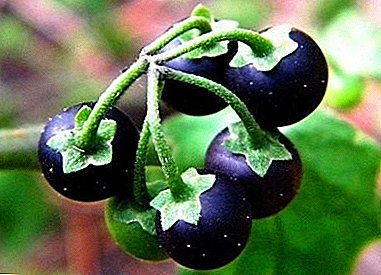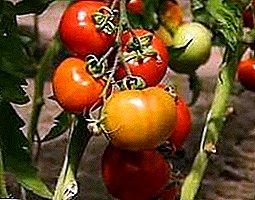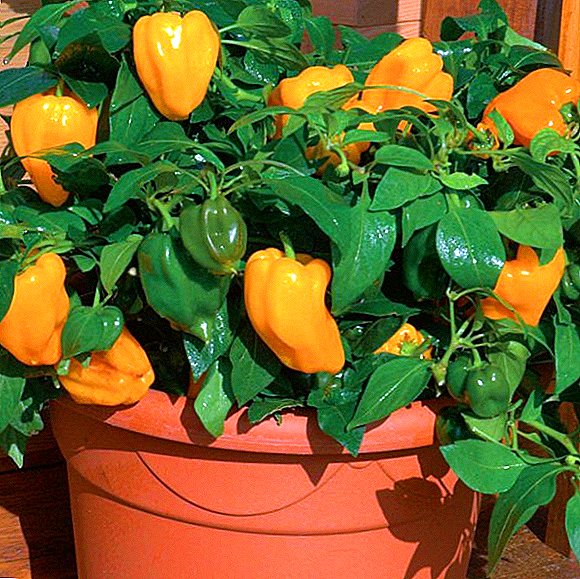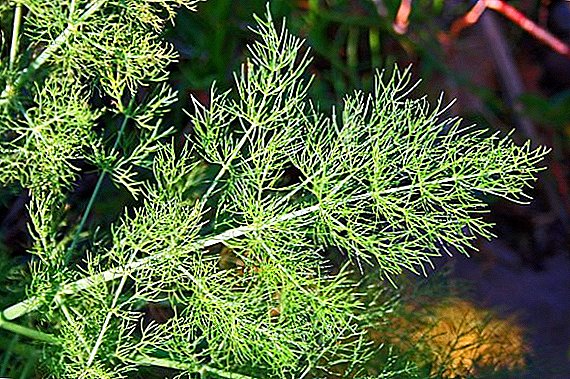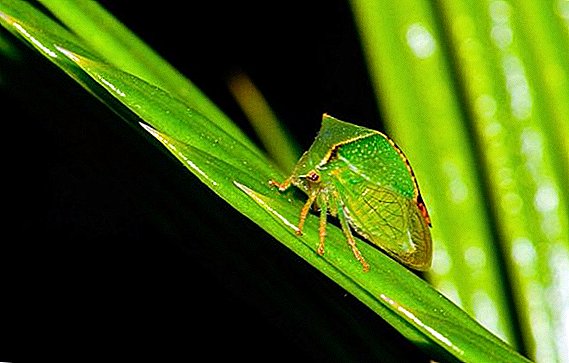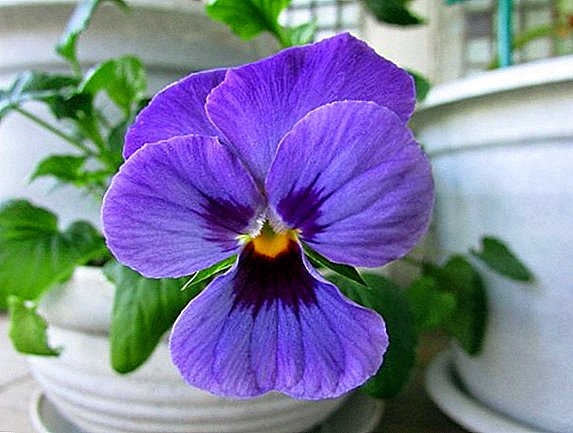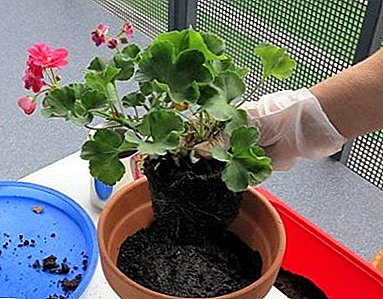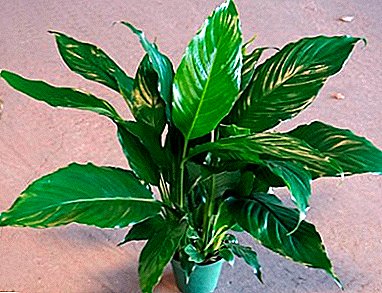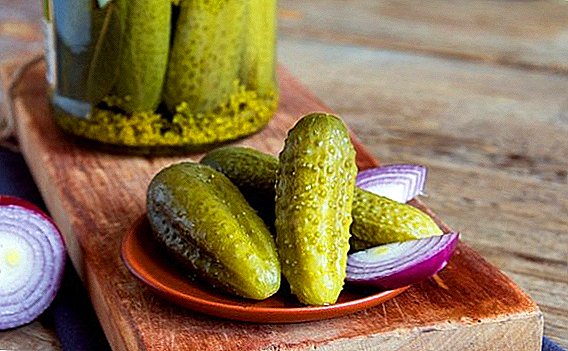 Tomatoes or tomatoes, as we most often call them, belong to the family of the Solanaceae, have the most excellent taste, and therefore from the middle of summer occupy one of the main places on the kitchen table.
Tomatoes or tomatoes, as we most often call them, belong to the family of the Solanaceae, have the most excellent taste, and therefore from the middle of summer occupy one of the main places on the kitchen table.
Description of cherry tomatoes, which varieties are suitable for open ground
Cherry tomatoes are one of the many varieties of tomatoes whose fruits are small and externally similar to cherries., hence the name of these tomatoes.
 However, even among the cherry trees there are also giants, the size of which can be compared with the size of a golf ball.
However, even among the cherry trees there are also giants, the size of which can be compared with the size of a golf ball.
Just like regular tomatoes, cherry trees belong to the family of Solanaceae, the shape of the fruit can vary from spherical to slightly elongated.
As a rule, cherries have a red color of fruits, but there are also varieties with a yellow, black and even green color of fruits.
Most often, a cherry tomato is used as a snack, salads are prepared from it, canned, and some varieties can be reserved for the future, drying.
Did you know? The difference between cherry tomatoes and ordinary tomatoes is that they are capable of keeping fresh for a longer period of time.
Cultivation of cherry tomatoes actually does not differ from cultivation of habitual tomatoes, therefore they can also be planted both in closed and open ground.
In addition, the long-term work of geneticists and breeders has provided consumers with a choice of growing methods: determinant (short) or indeterminate (tall). Consider what are cherry tomatoes and their best varieties for open ground.
Of the undersized varieties of cherry the most attractive for open ground are the following:
- "Salute". The bush grows no more than 80 cm in height. This cherry tomato produces about 300 buds, blooming gradually one after the other. The fruit is yellow, and its weight is about 20 g.
- "Arctic". The height of the bush, generously sprinkled with small raspberry fruits, is up to 40 cm. It is unpretentious to care, the fruits ripen in about 80 days. This cherry tomato is stunted and best for open field.
- "Arbat". The height of the bush can reach 1 meter, early maturing (105 days). Fruits are cylindrical in shape and red in color, by weight can be up to 100 g. Few are susceptible to fungal diseases.
 From tall cherries, that is, those that require mandatory garters to supports, to prevent the breaking of brushes, the following varieties should be distinguished:
From tall cherries, that is, those that require mandatory garters to supports, to prevent the breaking of brushes, the following varieties should be distinguished:
- "Red cherry". Tall bush covered with bright fruits weighing up to 35 g. The yield can be up to 3 kg per plant. It matures in about 100 days.
- "Dessert". Early cherry tomatoes are tall, ripening for 100 days. Fruit weight not more than 20 g, but their taste and high yield attract many gardeners. Required binding to the support.
- "Sweet Cherry". One of the popular hybrids that ripen quickly and bear fruit for a long time. The height of the bush can reach 4 meters. Fruits are red in color, comparable in size to the size of a tennis ball. Possess excellent taste.
Important! Cherry tomatoes must be harvested at full maturity. In the case of removal of tomatoes in the blanche (brown) ripeness followed by ripening, the sweetness of the fruit decreases.
When buying seeds, look carefully at the packaging of cherry tomatoes, the characteristics and description of the variety of which, as a rule, are indicated there.
Features of cultivation of cherry tomatoes
 In order to obtain a high yield of cherry tomatoes, they must be grown in a seedling manner, and then planted in open ground.
In order to obtain a high yield of cherry tomatoes, they must be grown in a seedling manner, and then planted in open ground.
Therefore, we consider how to grow tomatoes in the open field and what is needed for this.
Air humidity and temperature
For a friendly shoot of cherry tomatoes, seeds must be properly and well dried. They must be germinated at air temperature of at least 25-30 ° C. It is necessary to moisten the soil regularly, and then sprouts will appear approximately on the 6-8th day.
Lighting for successful growth
Cherry tomato seedlings trays should well shined with the sun, and as a tomato is a plant of a long day, it needs additional lighting, which can be arranged either with the help of ordinary fluorescent lamps (daylight), or use fitolamps.
Ground Requirements
 Tomato is very responsive to well fertilized fertile soils with a neutral indicator of soil acidity.
Tomato is very responsive to well fertilized fertile soils with a neutral indicator of soil acidity.
For a seedling method of growing cherry tomatoes, you can buy a universal soil that is sold in any specialty store, or you can take ordinary black soil and add a little river sand to it.
How to plant cherry tomatoes in open ground
Growing cherry tomatoes in the open field requires attention and diligence from any gardener.
The timing of planting and seed preparation
If you plan to plant a cherry at the cottage through seedlings, which is a more acceptable method, then you need to plant in the ground with hardened seedlings, on which 4-6 true sheets have already been formed.
But the preparation of tomato seedlings should be started in March, sowing full-weighted seeds in shallow grooves made in a prepared tray with soil.
 If it is planned to sow cherry tomatoes directly in open ground, then it is necessary to wait until the average air temperature will not be lower than 20 ° С, and the soil will warm to 15 ° С. It will be around mid-April-May.
If it is planned to sow cherry tomatoes directly in open ground, then it is necessary to wait until the average air temperature will not be lower than 20 ° С, and the soil will warm to 15 ° С. It will be around mid-April-May.
Seeds one day before sowing can be treated with a weak solution of potassium permanganate, holding them in it for 5-10 minutes, and then dried well. This will prevent the development of diseases with the simultaneous growth of the plant.
Sowing tomatoes
Sowing seeds of cherry tomatoes produced in the moistened grooves. After that, they need to fall asleep with a 0.5-centimeter layer of soil, press down a little (as if to trample) and water carefully. Before the emergence of shoots, it is necessary to water regularly, slightly loosen the soil and pull out the sprouted weeds.
Did you know? Cherry tomatoes are found to be beneficial due to the fact that they contain significant amounts of vitamins A, E, K and group B. Cherry also contains such macronutrients as potassium, magnesium, phosphorus, sodium, calcium, chlorine, sulfur, and trace elements such as iodine, copper, fluorine, manganese, iron and zinc.
Features care for cherry tomatoes in the open field
Since tomatoes can be sown both directly in the ground (this is called direct sowing) and through seedlings, the care for them is different. Sowing cherry tomatoes, which are planned to be grown and maintained by the seedling method, should be carried out such procedures as picking up seedlings into cups or small pots, hardening plants and planting seedlings in open ground.  Direct sowing implies direct sowing of seeds in well heated and prepared soil. Just as in the case of seedlings, in prepared, fertilized soil they make shallow grooves, pour them with water and wait for full absorption. Then they sow the seeds of cherry tomatoes, fall asleep with a small layer of earth, trample and water the rows a little again.
Direct sowing implies direct sowing of seeds in well heated and prepared soil. Just as in the case of seedlings, in prepared, fertilized soil they make shallow grooves, pour them with water and wait for full absorption. Then they sow the seeds of cherry tomatoes, fall asleep with a small layer of earth, trample and water the rows a little again.
How to care for seedlings
Grown seedlings require quenching, so that when they are transplanted into open ground, it is faster, as they say, "ill". To do this, after the appearance of 3-4 leafs present trays with seedlings are carried out on the street and put in a place protected from the wind and the scorching rays of the sun.
On the first day, seedlings can be left on the street for a while from 15 to 30 minutes, and the next day you can stand for about an hour. This is done daily, and you will see that the color of the stem of the plant from pale pink will turn into dark purple. This must be done before transferring cherry tomatoes for cultivation in the open field, otherwise they will not take root and die.
Care for cherry tomato seedlings
The main care for the emergence of cherry tomatoes in the open field is to periodically loosen the soil, remove weeds, and water.
Important! If ordinary tomatoes can be grown at a distance of 20-30 cm in a row from each other, then cherry tomatoes need more space. Therefore, the distance between the bushes should be at least 50 cm.
Rules for the care of cherry tomatoes in the open field
Before planting cherry tomato seedlings in a permanent place, prepare the plot in advance: loosen the soil, remove the weeds. Make the holes at least 10 cm deep, for overgrown seedlings make the hole wider to fit the seedlings in it.  Carefully free the shrub from the pot, taking care not to damage the roots, and put a hole in the hole with a clod of earth, pressing it in slightly. Pour water, cover with earth and trample around the plant. In less than two weeks, you can feed the cherry tomatoes with complex fertilizer with a lower nitrogen content.
Carefully free the shrub from the pot, taking care not to damage the roots, and put a hole in the hole with a clod of earth, pressing it in slightly. Pour water, cover with earth and trample around the plant. In less than two weeks, you can feed the cherry tomatoes with complex fertilizer with a lower nitrogen content.
If there was direct sowing (about how to grow tomato seedlings in the ground, it is written a little higher), then the care of cherry tomatoes consists also in loosening the soil, freeing it from weeds and occasional watering if necessary. When the plants grow up and form 5-6 true leaves, you need to remove the weak and excess shoots, carefully pulling them out of the ground. Healthy sprouts can be transplanted to a new place.
With any method of sowing on grown plants of tomatoes, if necessary, you need to hold cradle - removal of accessory sprouts formed in the leaf axils (between the leaf and the stem of the plant).
Also need to take care of the props.
The height of the supports for indeterminate plants should be at least 2 meters, for determinantal cherries it should be half shorter. 
The props can be any long stick, flat dry branches, which are found in your farm.
You need to tie up the plants as they grow.
Major diseases and pests of tomatoes
Even the most well-groomed crops of tomatoes can be affected by pests and diseases. Consider the most common diseases.
- Tomato Mosaic manifested in the form of a change in the color of the leaves, the appearance of dark green or yellow spots on them. The leaves become wrinkled and can curl, and the fruits turn yellow and dry out. There is a general weakness of the plant. Required to remove and burn diseased bushes.
- Late blight affects most of the tomato plants. A sign of this disease - brown spots, located under the skin of the fruit. The leaves of the same diseased plants are covered with whitish raids from below. The control method is any fungicide of the corresponding action.
- Brown spot Tomatoes appear as brown spots on the leaves below, covered with a grayish bloom. The main method of struggle is the obligatory and careful harvesting of the plant residues of tomatoes.
- Cracking fruit observed with excess moisture. The method of struggle - reducing the number of irrigations and loosening the soil.
 Medvedka. This pest makes deep moves in the soil, gnaws the base of the stem of a tomato, causing it to fade and die. Among the control measures can be called tillage drug "Thunder".
Medvedka. This pest makes deep moves in the soil, gnaws the base of the stem of a tomato, causing it to fade and die. Among the control measures can be called tillage drug "Thunder".- Wireworms damage the roots of plants and can climb inside the stems of tomatoes, which leads to wilting and death of the plant. To combat the wireworms, it is necessary to collect and destroy all the larvae of the pest when digging up the earth. On acid soils, liming can be performed.
- Colorado beetle lays orange eggs on the bottom of the leaves. Subsequently, the hatched larvae gnaw leaves up to the stem of the plant. The control method: manual pest collection and destruction, as well as treatment with Prestige.
- Slugs most often appear on overmoistened soils and in thickened crops of tomatoes, eating leaves on plants and penetrating inside the fruits of tomatoes.
Cherry Tomatoes: Harvesting
Harvesting cherry tomatoes is a rather laborious process.
 Since it is necessary to start from the time of ripening of the first fruits, then it is necessary to periodically continue at least 1-2 times a week until the very end of the growing season.
Since it is necessary to start from the time of ripening of the first fruits, then it is necessary to periodically continue at least 1-2 times a week until the very end of the growing season.
The delay in harvesting will cause the fruits to crumble when touched.
Therefore, harvesting cherry tomatoes must be timely and carefully.
With cherry tomatoes, your dishes will become more varied, and you will also want to plant cherry next year.


 Medvedka. This pest makes deep moves in the soil, gnaws the base of the stem of a tomato, causing it to fade and die. Among the control measures can be called tillage drug "Thunder".
Medvedka. This pest makes deep moves in the soil, gnaws the base of the stem of a tomato, causing it to fade and die. Among the control measures can be called tillage drug "Thunder".